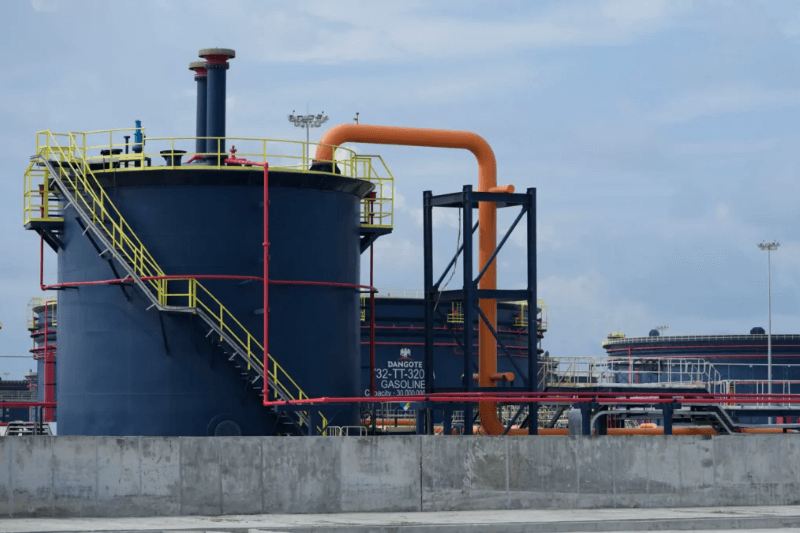In an attempt to settle issues between Africa’s richest man Aliko Dangote’s oil refinery and the regulatory body, Nigerian legislators started a probe on the allegedly imported contaminated fuel into the country on Monday.
Ikenga Ugochinyere, the chairman, disclosed that the parliamentary committee looking into claims of the “unregulated issuing of licenses and the presumed lack of international standard laboratories” linked with the contaminated items in Abuja is looking at
“If I knew what we are going to get into, I wouldn’s not have even started it at all… and that is why right from the beginning we launched 31 projects, all concurrently… but we are in the middle of the sea, if we stop swimming we sink, the only option is just to continue swimming no matter how tired you are.” Aliko Dangote, President/CEO of Dangote Industries Limited, defended his actions.
Allegations from the regulator that Dangote was attempting to monopolize the market and that the products of his refinery are of poor quality have caused the committee to encourage the Nigerian petroleum industry to lower the rising tensions in recent weeks.
According to Dangote, the mafia engaged in narcotics is not as deadly as the mafia in the oil business. He underlined that the oil mafia acts in secret both inside and outside, even though you might know some of your opponent in the narcotics trade. He declared his certainty that they might even have insiders supporting their activities.
Dangote also criticized Nigeria’s national shame—that country has been suffering with gasoline lines since 1972.
At Lagos, the biggest refinery in Africa, daily capacity is 650,000 barrels. Although officials praised the $19 billion facility as a game-changer, since launching more than a year ago it has had a slow start. The refinery has had to rely on imports from other nations due to difficulties obtaining crude oil locally, therefore underscoring Nigeria’s problems with oil theft and corruption.
Senior executive of the refinery has also said that foreign oil corporations in Nigeria are plotting to bring about refinery collapse. Vice-president of Dangote Industries Devakumar Edwin said the businesses either say crude is not available or they are purposefully requesting an outrageous premium.
Citing possible market monopoly, Farouk Ahmed, the chief executive of the regulatory body, voiced worries over Dangote’s demand to ban or suspend the importation of petroleum products. Dangote disagreed with these assertions, though, and urged legislators to visit the facility testing her products. He also said he did not get any incentives from the Nigerian government for the refinery and that the intentions to engage in the steel sector were being canceled.
Keep Reading
It is yet unknown where the conflict between Nigerian authorities and Dangote—whose businesses control several markets—origues. After close friend Dangote’s successor Muhammadu Buhari was chosen following last year’s presidential contest, this disagreement surfaced.
Such conflicts, analysts caution, might discourage foreign investment and throw Nigeria’s economy off balance. Nigerian economist Bismarck Rewane suggested deeper underlying problems when he questioned claims of low-quality products from the refinery, calling them unfounded without proof or consumer complaints.

